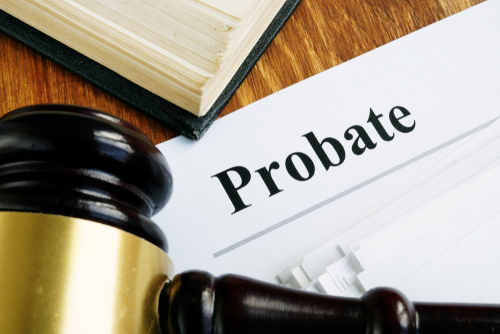Probate, by its very nature, occurs at the worst possible time—when you are processing the death of a loved one. Probate involves administrative duties that include filing your loved one’s Last Will and Testament with the court and determining how your loved one’s property and accounts should be distributed.
While probate can be a costly, time-consuming, and public process, it does not have to be stressful. You can ease the burden on your loved ones by preparing your estate plan in advance.
What is probate?
Probate is a legal process that provides a means for people to transfer property ownership in their name alone to their heirs or beneficiaries. The probate court will examine a person’s will to determine whether it is valid and authentic. Once this occurs, the legal transfer of their assets to their beneficiaries can begin.
If there is no will, intestacy laws will determine how a person’s assets will be distributed.
The probate process can involve:
- Identifying and inventorying a person’s assets
- Having the property appraised
- Paying off debts and taxes
- Distributing the property following the will or state law
The executor, or personal representative, is the person who is responsible for administering the estate, handling the decedent’s final affairs, and ensuring that their wishes are carried out as expressed in their will.
How long do you have to file probate after a loved one’s death?
The probate process does not automatically begin after a death. It will not open until a family member files a probate petition with the court.
The probate process varies by state, but it can entail a long process that takes months and sometimes years.
The sooner you, another family member, or the person named as the executor of the will file the petition for probate, the sooner the process can begin.
The time frame for filing probate varies by state. In some states, the process must begin within 30 days of the decedent’s death. If the executor does not file within 30 days, this may indicate that they are waiving their right to be the executor. In this case, the family may choose to file a small estate affidavit instead. If this is their intent, they must wait until 40 days have passed since the death.
Some states may be more lenient with their timeline, but in general, it is best to file a probate petition as soon as possible. The executor or family member will present the decedent’s will to the probate court at the same time that they complete the petition for probate.
What happens during the probate process?
Although the timeline can vary by state, these are the typical steps in the probate process:
- File the petition: The named executor fills out the probate petition and death certificate and files the Last Will and Testament with the court. When the court receives the information, a hearing will be scheduled. The judge will open the case and either approve the executor or name an administrator if the decedent has died without a will (intestate).
- Notify all interested parties: the executor will notify all interested beneficiaries, heirs, and creditors.
- Inventory the assets: After notifying everyone who may have an interest, the executor identifies, collects, and appraises the decedent’s property. An executor frequently hires an appraiser to help with this process if any of the property is difficult to assign a value to or if there is a large estate.
- Pay any outstanding debts: Creditors have six months to make their claims on the estate. Once this deadline passes, the executor pays off the decedent’s debts.
- Close probate: After all debts have been cleared, the executor asks the probate court for permission to close probate and distribute the remaining assets. The executor will be responsible for carefully accounting for all their activities while paying creditors and distributing assets.
Some smaller estates can go through a simplified probate process. If the decedent’s estate meets specific requirements, it may pass through the probate process more quickly.
Creating a will and nominating an executor is a great place to start your estate planning. Talk to your estate planning attorney about the potential benefits of moving your assets and property into a trust. With proper estate planning, trust-owned assets can pass right to their beneficiaries without going through the probate process.
Speak to a trusted advisor to help you develop your estate plan. Contact us and schedule a call with us at 855.631.3457 to learn more about how to protect those most important to you.








